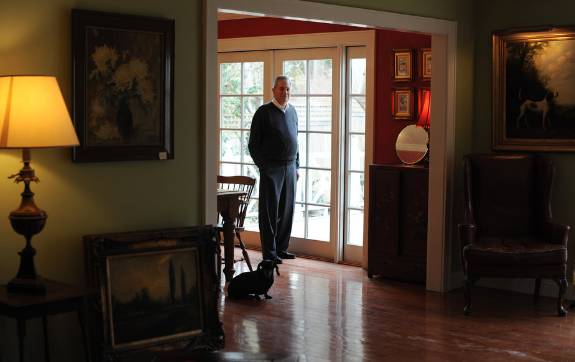The U.S. housing market is about to usher in a new era this weekend.

Image Source: Sourced from the Internet
Briefly three major changes are about to begin.
First, most home sellers used to pay both buyer and seller commissions after closing. Most buyers, on the other hand, pay nothing to the agent. Under the settlement agreement, the traditional compensation system for agents and brokers may change, and it is possible that buyers will have to pay their own commissions.
Second, all homebuyers must sign a contract with a broker before the broker can begin showing them homes.
Third, seller's agents must stop posting buyer commission offers in the real estate listing database (MLS). Compensation offers can continue, but they cannot be published in listing services operated by real estate brokers.
Beginning August 17, unless you have an agency agreement with a Realtor, they cannot show you a home. This includes calling the other listing agent, showing you any homes, etc.
The agreement between the buyer and the realtor is the Buyer's Representation Agreement. This agreement is basically a contract between you and the realtor stating that you will be hiring them to purchase a home and agreeing to the roles, duties and responsibilities of both parties.
The good news is that as a seller you can work with your broker to determine when the agreement expires. You may have to sign an agreement, but if you're not ready to fully commit to a realtor, you can always request that the length of the agreement expire in a day, a week, or a month. You can even sign an agreement just for a specific property.

Image Source: Sourced from the Internet
Another major change that will concern home sellers' wallets is that under the current model, sellers must pay a 5 to 6 percent commission, which is usually split equally or proportionately between the seller's broker and the buyer's broker. This meant that sellers had to overpay this amount to the point where the fee was disguised as being added to the price of the home.
Now that the mandatory commission system has been eliminated, the buyer's commission and the seller's commission will be separate, with each party negotiating their own commission with their own agent. Of course this rule does not in itself reduce commissions on home sales, it just changes the pattern of commission payments, but it is widely believed that with the system in place, the elimination of the mandatory rules will promote competition in the marketplace, forcing both buyers and sellers' brokers to lower their commissions, which in turn will reduce the cost of buying and selling a home and lower the price of the home.

In addition, a number of regulations that have long monopolized the U.S. housing market will be broken. One of them prohibits the inclusion of information about brokerage commissions in centralized listings known as multiple listing services (MLS); another ends the requirement that brokers must subscribe to an MLS service in order to receive commissions. Although NAR claims not to own MLSs, many MLS services are operated by NAR's various local sub-agencies. Under the new rule, more brokers will cancel their MLS subscriptions and turn to other channels to post listings, thus breaking the monopoly.
The U.S. public spends up to $100 billion a year on real estate brokerage commissions, and U.S. real estate brokerage commissions are much higher than in most parts of the world - the average real estate brokerage fee in countries around the globe is only 1 to 2 percent. TD Cowen Insights estimates that real estate commissions could drop by 25 to 50 percent once the new regulations are implemented.

Image Source: Sourced from the Internet
With changes in the market, there will always be those who make sacrifices and those who benefit from the new regulations.
Some brokers predict that the new regulations will open up new business models and may cause many of their peers to leave the industry, while others are happy to see the shift.
Many real estate brokers interviewed by a CNN reporter said the new rules would encourage experienced brokers, but could make it harder for younger brokers to break into the market because buyers might be reluctant to sign legally binding agreements with inexperienced brokers.

Image Source: Sourced from the Internet
Mr. Chu, who owns a home in New Jersey, said NAR's new policy would affect sellers and buyers differently because of differences in demand for houses. For example, if he is a buyer, the overall impact will not be significant because the broker's commission is not paid by the buyer. If you are a seller, you may expect to pay less brokerage commission in the future, but you still need to consider brokers with good reputation and sales records first. Otherwise, it's not worth it to use a broker who can't help you sell your home in a certain amount of time, even if the commission is low.
Some analyses have pointed out that the real estate brokerage industry is facing a major reshuffle of the best and the worst after the NAR eliminated the mandatory commission rule, with some estimates suggesting that as many as 1 million real estate brokers may be forced to switch careers.

Image Source: Sourced from the Internet
Others say the change in the commission system may not necessarily benefit the housing market in the short term. The reason is that if buyers are made to pay the brokerage fee themselves, it will greatly reduce their purchasing power because if the seller is made to pay it, this fee can be included in the loan, whereas if the buyer is made to pay it himself, he will have to have a much larger upfront payment. So, the rule change is not good for buyers in the short term, reducing their purchasing power, and it's not necessarily good for sellers either, as there are fewer potential buyers.

In response, Leo Pareja, CEO of eXp Realty, a real estate brokerage, said, It's a big social experiment for the industry as a whole, and I'm preparing my agents for a whole lot of chaos, and I'm expecting quite a bit of chaos.
-------- END --------






